

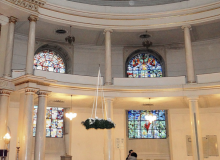
Schuman warned that democracy cut off from the Christian values of peace, solidarity, freedom of conscience and rule of law would degenerate into tyranny. Autocratic rulers espousing Christian language are cloaking this degeneration.
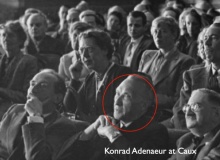
Few remember how distrusting, fearful and uncertain the post-war years of the late 1940s were, with lives, bodies, families, cities and nations having been broken, disrupted and destroyed. How do you rebuild out of such brokenness?
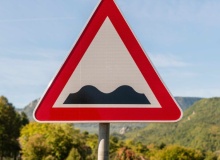
Pundits warn that in 2025 we are heading back to the law of the jungle, a world where might is right and money manipulates.
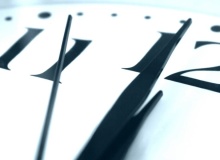
Jesus talked of wheat and tares growing up together. Here is a random sample of both in the last 25 years.
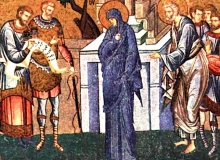
Yet for all the blame heaped on ‘religion’ for wars and strife, the influence of the teaching of the babe of Bethlehem on loving God and neighbour has been unparalleled.
.jpg)
The roots of human rights actually go back much further than the Enlightenment, to minority Christian traditions including Mennonites and Baptists.
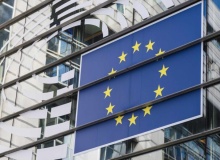
Europe’s identity as ‘Christendom’, a unity with much diversity, distinct from her pagan Eurasian roots, led to self-perception as a ‘continent’.
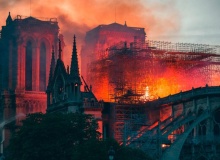
Paradoxically, in secular Europe, cathedrals continue to be among the most visited tourist sites.

Our Christian presence will bring new life into each sphere, much as the expansion of the early church eventually turned the Roman Empire upside down.
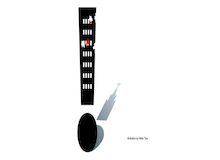
Let us continue to pray for more ‘moments of grace’, and a just and lasting end to this war.

We join up the dots of life around us to create our own narratives, to explain the realities that we perceive.
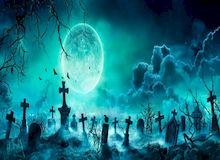
Europe and European culture had been shaped overwhelmingly by the gospel story.
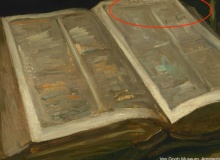
The year 1880 was indeed a pivotal year in Van Gogh’s life, when he rejected institutional Christianity and what he saw as the hypocrisy of the clergy.
.jpg)
While AI does not pose an existential threat to humanity, we must be aware of the concerning ways it is shaping our understandings of God, ourselves, and the world around us.

The Lausanne 4 congress deploys the term ‘polycentric Christianity’ to describe the shift from being solely a ‘EuroAmerican religion’ to a global one.
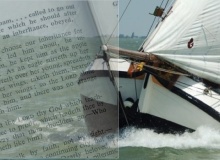
My pilgrimage started on the other side of the world and has taken me from place to place before eventually starting a new Fountain tribe in the Netherlands.

What amazing growth has happened both in YWAM and the majority world church in these past fifty-plus years!
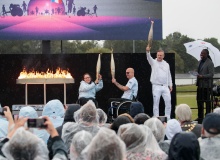
Paralympics are declaring to the world that social value and human dignity are not rooted in physical perfection.
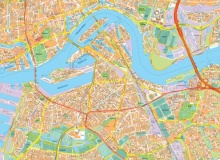
While some worldviews may be closer to a biblical understanding of reality than others, they are still the wrong map.
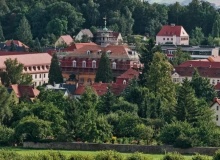
Herrnhut, recognised as a World Heritage Site, was established by refugees fleeing from the Catholic Counter-Reformation in Bohemia and Moravia.
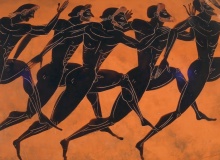
Throughout the centuries, Christianity and the Olympic Games have had an ambivalent relationship. For good reasons. But today Christians have come to see major sports gatherings as God-given opportunities for evangelism.

July 17, 2014, was the Dutch 9/11. More Dutch were killed on that day per head of population than Americans on 9/11.
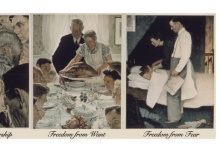
The instinct to withdraw into isolationism and nationalism is understandable, yet it plays into the hands of authoritarian, anti-democratic forces.
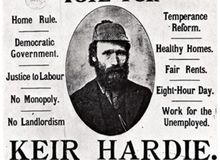
Keir Starmer’s parents reportedly named him after Keir Hardie, the radical Christian co-founder of the Labour Party. Unlike Hardie, the new UK prime minister belongs to the 37% of Brits who tick the ‘no religion’ box.
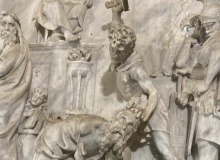
For those of us who have grown up so familiar with stories and images of the cross, we are not shocked, horrified and repulsed by the reality it represented.

Las opiniones vertidas por nuestros colaboradores se realizan a nivel personal, pudiendo coincidir o no con la postura de la dirección de Protestante Digital.